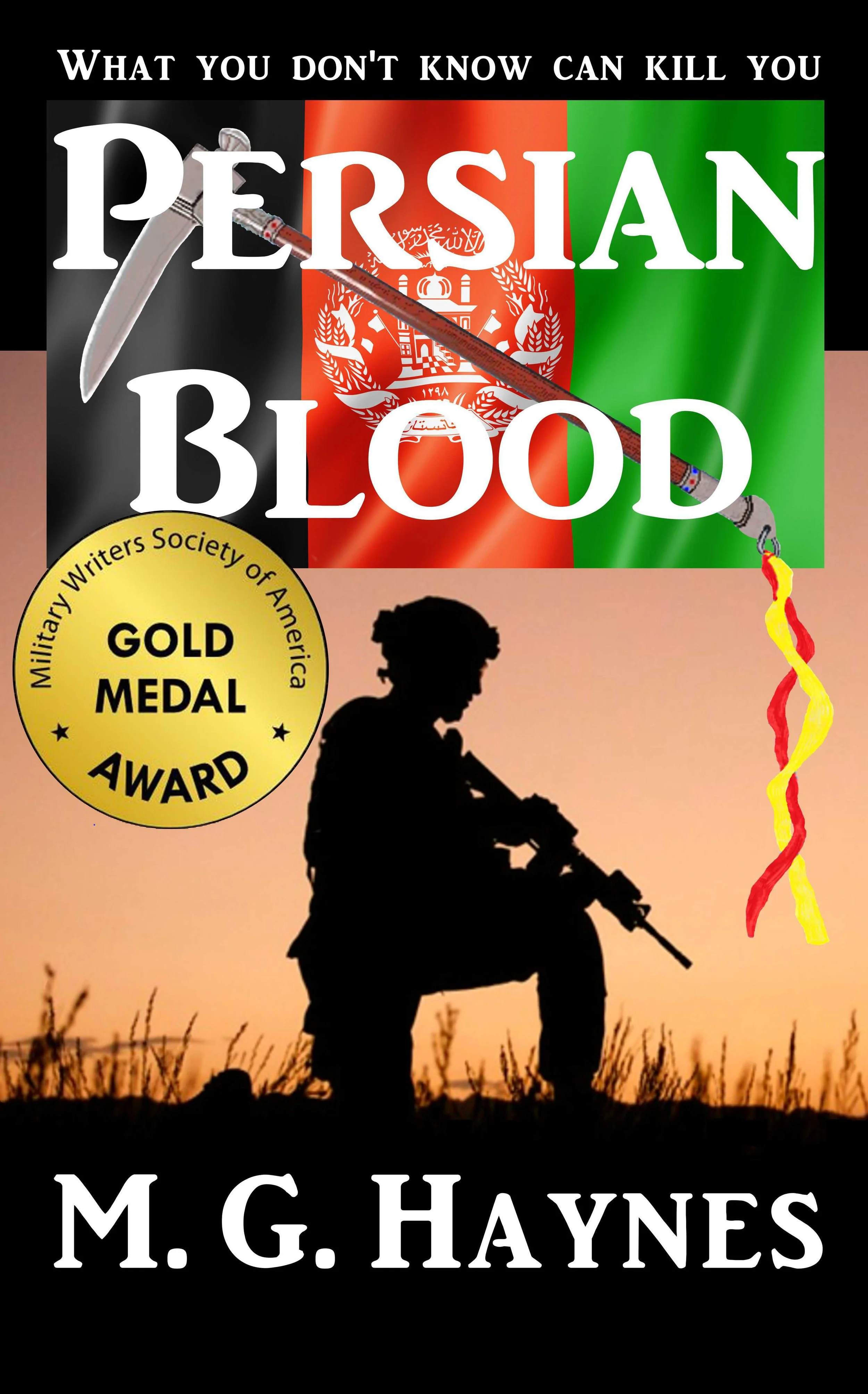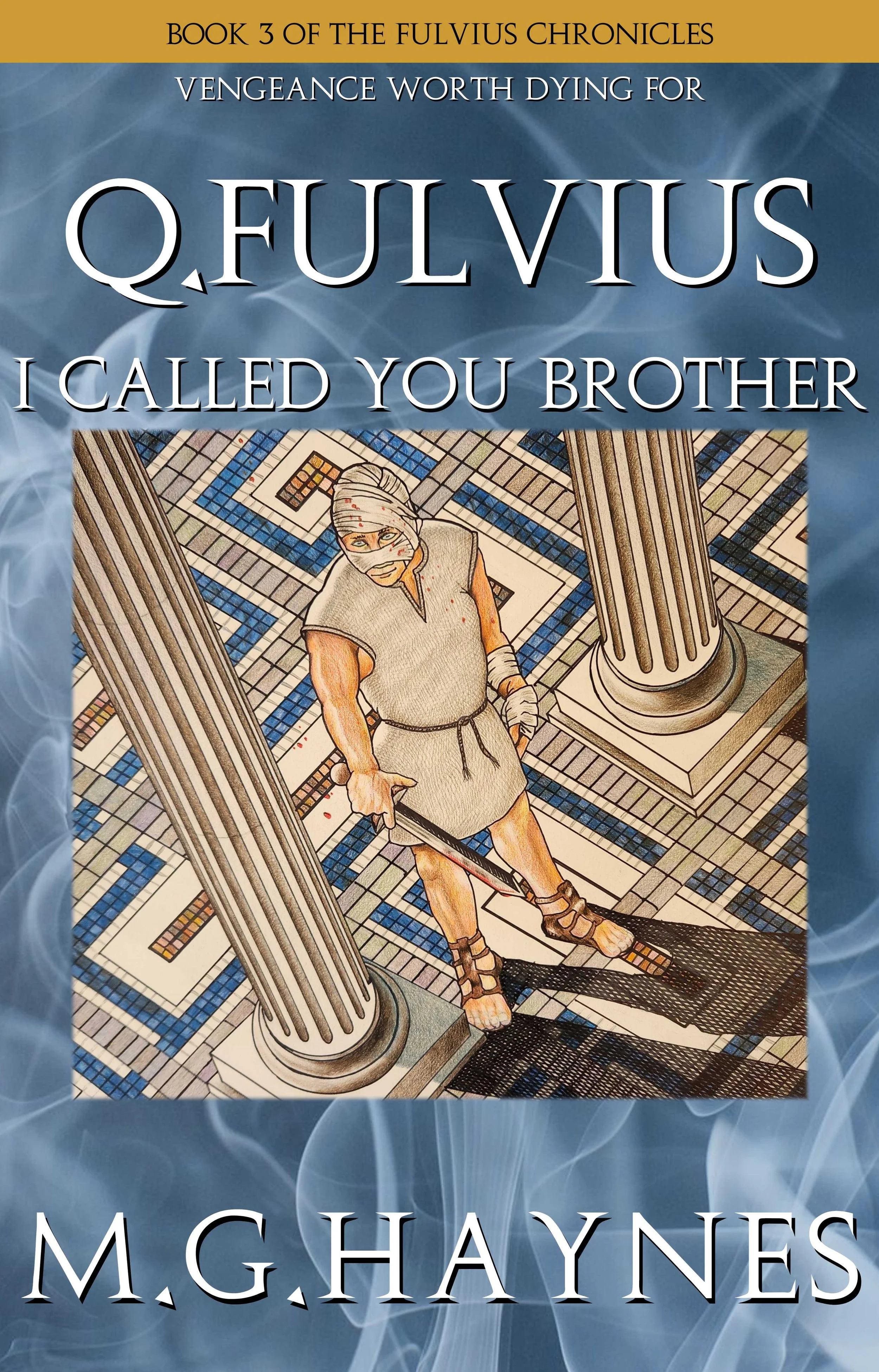Sneak Peeks…
Brief glimpses behind the scenes of a young(ish) author.
9 January 2025
I didn’t intend to start writing the way I did. I know, that’s halfway to being a country song, but in my case it’s absolutely true. I didn’t set out to write a novel at all, frankly. I just knew, from previous experience, that the act of writing—of inventing and then putting down on paper—a story derived from the deep recesses of my imagination was . . . well . . . therapeutic. In short, I find writing to be a very calming exercise.
I discovered this, interestingly enough, while attending the Defense Language Institute at the Presidio of Monterrey, CA in 2003. Those courses are designed to take one from a “zero” or “I wouldn’t recognize the language if I heard it” to what the government considers a “two” which translates roughly as an “elementary” level of competency. It’s a five-point scale, with “five” indicating complete fluency in the target language, yet elementary proficiency is considered the necessary, minimum foundation upon which linguists are expected to build upon in order to achieve department missions and goals out in the field.
The government ranks languages based on the difficulty experienced by native English speakers in learning them. Romance and Latin-derived languages are thus Category 1 while Chinese, Arabic, Korean, and Japanese are considered the most difficult and are considered Category 4.
By the time I attended the 16-month course, I’d spent years gaining a basic proficiency in Korean on my own. Made sense, right? I’d just finished my second tour in that country and, as a Northeast Asia Foreign Area Officer, fully expected to return. I knew that a solid year-and-a-half of intensive study would take me from where I was to absolute fluency . . . and was quite excited by that prospect! Yet the Army—or rather the nameless, faceless bureaucracy that so often decides such things in the Army—had other plans. I was sent to learn Japanese instead . . . the “other” language learned and utilized by NE Asian FAOs.
Needless to say, the switch from one Category 4 language to another was not easy. Right up until the very end, Korean words would slip out in class instead of their Japanese equivalent. Or worse, knowing the next word to spill out of my mouth was from the wrong language, my mind would simply seize up and NOTHING would come out! These were, needless to say, stressful times, as we were told throughout the course that failure to achieve the requisite standard by the end of the program was essentially a career-ending move for a FAO.
So, unsurprising now, I guess, I turned to writing as a means to channel and thereby reduce stress. And it worked gangbusters! Taking all that angst and turning it into fictional encounters did wonders for my ability to focus on the work at hand and make it through that school. Of course, given the circumstances, that period in my life produced some very dark writing which I still—twenty years later—debate whether or not I should re-visit and turn into a proper novel. Regardless, I’d hit upon a new form of stress relief, one that would serve me well later on in life.
Fast forward seven years and I’m once more in Korea—a whole other, very long story, I assure you—getting ready to deploy to Afghanistan. It was 2010 and the administration had just announced its intent to surge forces into the theater, hoping for the kind of impact achieved by a similar strategy in Iraq the year prior. So, there I was, finally deploying “downrange” after numerous requests to do so, packed and both physically and mentally prepared for what awaited me.
Yet just because you’re getting what you want—or doing what you want—doesn’t mean there isn’t stress involved . . . and as my deployment date grew near I was feeling it. Digging into my own personal tool-kit I remembered my experience writing at DLI and decided that was the best way to give vent to what I was feeling and, frankly, to keep from focusing on any of the hundred bad things that could happen over the course of twelve months in a warzone.
Proving once more that a writer has little control over where the story goes once he or she starts writing, the tale that emerged ended up being miles away from the one I dreamt up at Ft. Benning, waiting to ship out. My original idea was to riff off of the experiences of Alexander the Great’s army after crossing the Gedrosian Desert in 326 BC. Legend tells us his long-suffering army all but crawled out of the desert, easy pickings for any enemy, but was instead accommodated and nursed back to health through a remarkably egalitarian exercise of hospitality practiced by a local tribe. My intent was to write of the British invasion of Afghanistan in 1878, following a young officer as he narrowly escapes the carnage there and is rescued by that same tribe inhabiting the fringe of the Gedrosian Desert.
A fun concept to play with in my head as I boarded the transport plane in “full battle rattle” and headed off to war. Yet upon my arrival in Kabul . . . somehow being there, in-country, where the events in my head were supposed to play out, a very, VERY different story began to percolate.
Things started to go wrong almost immediately while doing research online. Sure, how many times has an aspiring author of historical fiction said that? But in my case it was true, though not for the reason you might suspect. Usually, this becomes an issue because the researcher trips across some bit of information that completely undermines the entire story, forcing the author to make a decision . . . continue on, writing what you know to be bad history, or adjust to the new information, potentially requiring a massive re-write.
In my case, however, the problem I encountered was far different if, perhaps, more interesting. In reading Herodotus one night I tripped across the execution of a Persian advisor’s sons as Darius headed off to his doomed Scythian campaign in 513 BC . . . and couldn’t get the idea out of my head. I tried, you know, as I really wanted to make progress on my British invasion story. But it just kept ricocheting around like a rubber bullet until eventually I gave in and let it take me in a completely different direction. It was, after all, a MUCH more intriguing story, offering the rare opportunity to tie that ancient tale to the military operations being carried out everywhere around me. This new story was, in effect, a wonderful blend of fiction and reality, and thus much more compelling than the one I’d been mulling over.
Sitting in briefings everyday and reading situation reports from units out in the dangerous hinterland ended up being juxtaposed with nightly readings of Herodotus and others who captured the historical events in the region over the course of a millennium. Very quickly, it seems, the two sort of merged in my mind’s eye and began pouring out onto the screen of my tiny laptop. What emerged, over the course of the next fifty-two weeks was my first fully formed novel, “Persian Blood,” published in 2017.
When I tell people I sort of tripped into writing fictional novels, this is what I mean. I didn’t exactly set out to write a novel at all. In fact, if you’d clued me in back in 2010 as to how much additional work goes into publishing a book, it might have scared me off completely! And yet the experience was, by every measure, deeply satisfying, clarifying for me the age-old question of what I wanted to be when I grew up.
So now, here I am, retired from the Army after thirty long years. Finally, I find myself writing full time . . . and loving every minute. I hope that enjoyment makes its way onto the pages of current and future projects, as I have a lot of them.
Regardless, I hope you all have an incredible 2025. And whatever else you do . . . please keep reading!
Respectfully,
M. G. Haynes
22 November 2024
“Where did Fulvius go?”
Some of you might be wondering why I diverted from the story of Fulvius in my latest book, “Q.Fulvius: I Called You Brother”. Well, it’s a bit of a funny tale, but I think you will appreciate it and understand.
After “A Pirate’s Life” it became clear that somebody powerful was guiding the affairs which so tormented our favorite Roman criminal and his oh-so-violent associates. As with any adventure story arc, our anti-hero Fulvius and his unidentified nemesis must, at some point, come together in an exciting climactic encounter. The problem is that I had intentionally hidden the identity (okay…there were some hints) of that shadowy Roman hand.
Marcus was, at that point in the story, virtually forgotten, left in the hands of Roman authorities way back in Chapter one of “Debt of Dishonor”. So forgotten, in fact, that even my editor—who has read and reread each of the books multiple times and does this sort of thing for a living—never connected the two and was shocked at the revelation. This was, of course, intensely satisfying for me as a writer as I desperately wanted it to be a shock. Unfortunately, the cost of achieving that big reveal was that it created a big problem for the long-term storyline.
Some of you may be aware “The Fulvius Chronicles” was not originally intended to be anything of the sort. The original incarnation was a short story entered into an “Ancient Warfare Magazine” historical fiction writing contest. That short story was essentially the battle sequence wherein Fulvius makes his bones…you remember, the scene with the elephant. Having just published my first book “Persian Blood” I had no intention of drafting another right away, much less starting a series! That said, multiple readers who proofread or otherwise got their hands on it remarked what a wonderfully complex character Fulvius made…and urged me to turn it into a full-length novel.
So, “Debt of Dishonor” was published in 2016 as a one-off, and I turned back to other projects. Yet the response was quite encouraging. Apparently readers—including some of you, actually—liked the antihero Fulvius and immediately began asking for more. So, back to the drawing board, and I began working on “A Pirate’s Life” book two in what was then intended to be only a 3-book series.
Early last year, however, as I spoke with my editor about the final volume we hit upon a problem. I couldn’t realistically bring Marcus in as such an important character without at least laying out where the guy had been for the previous couple years and, perhaps more importantly, why he had it in for Fulvius.
This led to a three-month back-and-forth between me and my editor over how to solve the issue. Editors, in general, hate long periods of exposition in works of fiction, yet properly introducing Marcus onto the scene would seemingly require just that. In fact, between the two of us we estimated that adequately fleshing out Marcus’s back story might conservatively take up half of the book!
This was clearly unacceptable to both of us until we hit upon the simplest—if a touch unorthodox—of solutions. Marcus needed his own book. Thus, “I Called You Brother” came into being, unfortunately interrupting the flow of Fulvius’s own storyline in a way that was less than desirable, but will in the end, I think, provide a much more satisfying Book 4.
I hope that helps to explain the rationale a bit. I’m open to your questions and criticism, of course. You can either submit comments here or, alternatively, email me at: mg.haynes@yahoo.com. At this point the number of subscribers to this list is embarrassingly low and so I will undoubtedly respond to any questions or constructive criticism. Further, I hope to offer more behind-the-scenes looks into my writing journey over the course of the coming months and years, this secret page of the website available only to subscribers.
That’s about it, I guess, for this first sneak-peak. I hope you have a wonderful Thanksgiving and a very Merry Christmas! And whatever you do…please keep reading.
Respectfully,
M. G. Haynes


